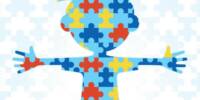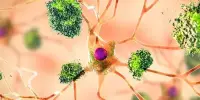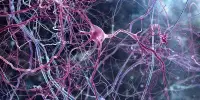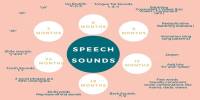Predicting the risk of Attention Deficit Hyperactivity Disorder (ADHD) in individuals, particularly youngsters, is a difficult task. ADHD is a complex neurodevelopmental condition that results from a mix of genetic, environmental, and neurological variables. While there are no proven predictors of ADHD, there are several early warning signals and risk factors that may enhance the likelihood of its occurrence.
According to recent research from RCSI University of Medicine and Health Sciences, information available at birth may assist in identifying children who are more likely to acquire ADHD. The study, published in Development and Psychopathology, looked at data from over 10,000 children in the United States and discovered that information about pregnancy and birth can help predict the severity of ADHD symptoms in children.
The Adolescent Brain Cognitive Development (ABCD) project is an ongoing study of children born between 2005 and 2009 in the United States. Children were recruited in the study between the ages of 9 and 10, and their parents were questioned about the pregnancy and birth, as well as their child’s present mental health.
In our study, mothers were asked about their child’s pregnancy and birth 9-10 years before. The next step would be to do research on a group that has been tracked in real-time throughout pregnancy, birth, and childhood. This would increase our trust in this prenatal information and our belief that it can help identify children at risk of developing ADHD at a young age.
Professor Mary Cannon
The RCSI researchers selected 40 characteristics that would normally be known at birth, such as the baby’s gender, the age of the parents, any difficulties during pregnancy or delivery, and the baby’s exposure to hazards such as cigarette smoke in the womb. The researchers discovered that 17 of the 40 characteristics were very good in predicting the number of ADHD symptoms in children using machine learning and statistical methodologies.
Dr Niamh Dooley of the RCSI Department of Psychiatry, co-lead researcher, noted that few studies have looked at how prenatal and birth information could be relevant in predicting ADHD: “We know that certain events during our time in the womb can have long-term health consequences. However, few research has attempted to quantify how beneficial prenatal information may be in predicting childhood ADHD symptoms. We concentrated on easily accessible information about pregnancies and births, such as that found in prenatal records. This ensures that our findings can be compared to other research that uses medical information and that they are applicable to public health.”

“The other key element of this study was acknowledging the contribution of social, economic, and demographic factors to maternal and child health. For instance, prenatal information did not predict ADHD symptoms equally across the sexes, family income brackets, or racial/ethnic groups,” Dr Dooley said.
“While we only explained up to 10% of the variation in childhood ADHD symptoms, this was with information typically available at birth,” said Professor Mary Cannon, Professor of Psychiatric Epidemiology and Youth Mental Health at RCSI and study co-lead. We cannot predict who will develop ADHD in childhood based just on birth information, but it may assist in identifying which children require the greatest support, especially when paired with other factors such as genetics, family history, and the early life environment.
“In our study, mothers were asked about their child’s pregnancy and birth 9-10 years before. The next step would be to do research on a group that has been tracked in real-time throughout pregnancy, birth, and childhood. This would increase our trust in this prenatal information and our belief that it can help identify children at risk of developing ADHD at a young age.”
The study found that being male, as well as being exposed to conditions while in the womb such as cigarette smoke, recreational drugs, and the mother having urinary tract infections or low iron levels, were effective in predicting ADHD symptoms in childhood.
















